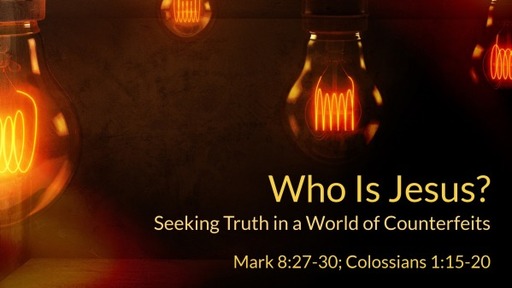Who Is Jesus?

Who Is Jesus?
Nero from the infamy of being believed to have ordered the conflagration, the fire of Rome. Hence to suppress the rumor, he falsely charged with the guilt, and punished with the most exquisite tortures, the persons commonly called Christians, who were hated for their enormities. Christus, the founder of the name, was put to death by Pontius Pilate, procurator of Judea in the reign of Tiberius: but the pernicious superstition, repressed for a time, broke out again, not only through Judea, where the mischief originated, but through the city of Rome also. (Annals XV. 44)
Who Is Jesus?
Was Jesus a Liar?
Was Jesus a Lunatic?
The charge of an extravagant, self-deluding enthusiasm is the last to be fastened on Jesus. Where can we find the traces of it in His history? Do we detect them in the calm authority of His precepts? in the mild, practical and beneficent spirit of His religion; in the unlabored simplicity of the language with which He unfolds His high powers and the sublime truths of religion; or in the good sense, the knowledge of human nature, which He always discovers in His estimate and treatment of the different classes of men with whom He acted? Do we discover this enthusiasm in the singular fact, that whilst He claimed power in the future world, and always turned men’s minds to heaven, He never indulged His own imagination, or stimulated that of His disciples, by giving vivid pictures or any minute description of that unseen state? The truth is, that, remarkable as was the character of Jesus, it was distinguished by nothing more than by calmness and self-possession. This trait pervades His other excellences. How calm was His piety! Point me, if you can, to one vehement, passionate expression of His religious feelings. Does the Lord’s Prayer breathe a feverish enthusiasm?…His benevolence, too, though singularly earnest and deep, was composed and serene. He never lost the possession of Himself in His sympathy with others; was never hurried into the impatient and rash enterprises of an enthusiastic philanthropy; but did good with the tranquility and constancy which mark the providence of God. (Schaff, TPOC, 98, 99)